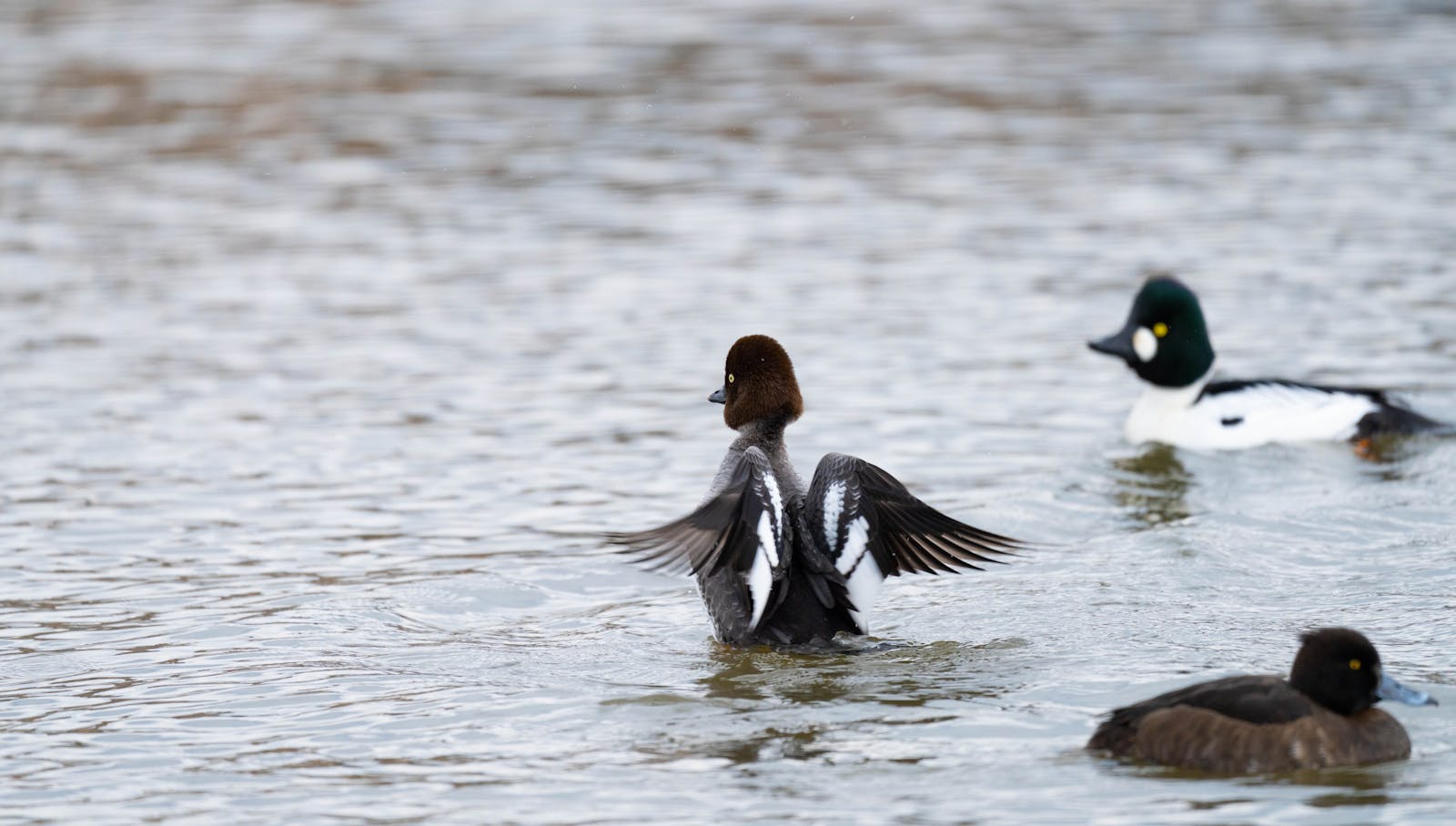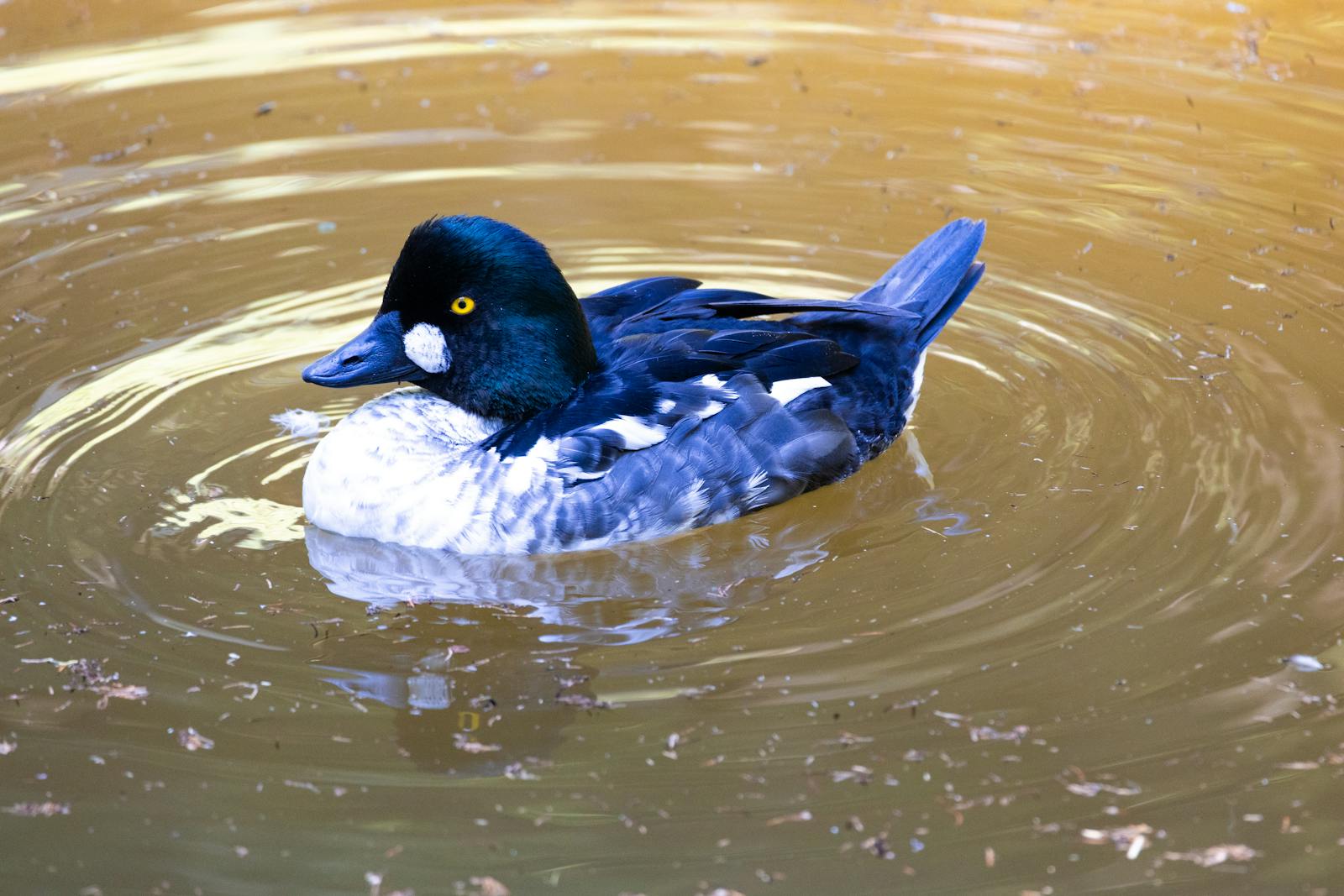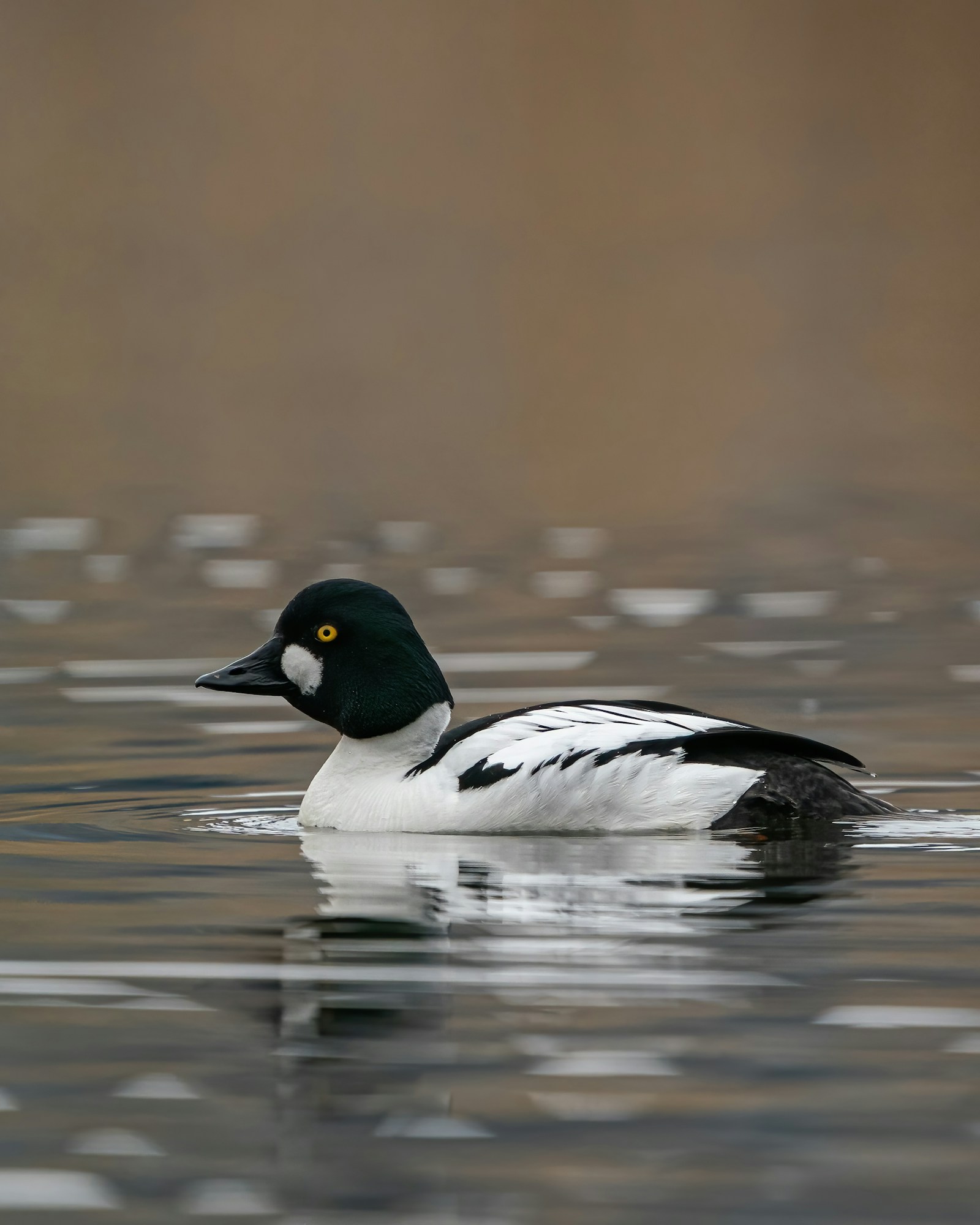Goldeneye Ducks: The Alberta Foothills’ Golden Gliders
You’re out by the pond on your rural acreage, watching the sun shimmer on the water, when a sudden splash interrupts the quiet morning. You look over, and there they are — a small flock of Common Goldeneye ducks, diving and resurfacing like little feathered submarines. Their glossy green heads catch the light, and their piercing yellow eyes seem to size you up before they vanish beneath the surface again.
As a rural realtor, I’ve seen plenty of wildlife moments, but was surprised by how different these goldeneye ducks looked. Living in Alberta means you see plenty of ducks, mostly mallards, so seeing something I have only seen a few times is special. Sharing your space with unique wildlife is truly something worth appreciating. These hardy, resourceful waterfowl are one of the best perks of acreage life.
Imagine- One cool spring morning, while showing a property near a small lake, spotting a pair of goldeneye ducks paddling around. My clients, city folks eager for a taste of rural living, were enchanted by the ducks’ synchronized diving routine.

Suddenly, the male duck threw his head back, gave a short, squeaky whistle, and performed a quick backflip, splashing his mate. My clients burst out laughing — and I couldn’t help but join in. “That’s how he shows off,” I explained. “If you live out here, you’ll see plenty of his antics.”
Goldeneye ducks are aptly named for their striking yellow eyes, which stand out against their iridescent greenish-black heads and white bodies. The males’ distinctive courtship display is a sight to behold — they toss their heads back and emit a soft whistle to impress the females.
They’re not just eye-catching; they’re also one of Alberta’s most resilient duck species. They arrive in the foothills as soon as the ice thaws, often before other migratory birds return, making them one of the first harbingers of spring.
Goldeneyes are cavity nesters, meaning they take up residence in old woodpecker holes or natural tree cavities near water. By reusing these natural spaces, they help maintain the balance of the forest ecosystem. Once the ducklings hatch, they perform a dramatic leap from the nest — sometimes from heights of up to 30 feet — landing unscathed and ready to waddle to the water.
Goldeneye ducks are long-distance migrators. They winter as far south as the United States but head north to breed in Canada’s boreal forest and foothills. Their arrival in Alberta’s waterways is a sure sign that spring is on the way.
These ducks are expert divers, hunting for aquatic insects, crustaceans, and small fish. They’re also known to eat plant matter, like pondweed, when animal prey is scarce. Their efficient foraging helps keep insect populations balanced, making them invaluable to aquatic ecosystems.
Goldeneyes have a few natural predators. Eagles, hawks, and owls might snatch a duckling or an adult. On the water, mink and otters are the primary threats. However, their diving skills make them tricky targets — a quick plunge, and they’re gone from sight.

While goldeneyes are beautiful to watch, they can be a bit territorial during breeding season. If you have a pond on your property, give them space, especially when ducklings are around. You can encourage their presence by installing nest boxes near water, as they often seek out artificial cavities when natural ones are scarce.
Apart from their striking eyes and bold courtship routines, goldeneyes are remarkable for their adaptability. They thrive in both wild lakes and human-made ponds, making them frequent visitors to rural properties with natural water features.
Living in the Alberta foothills means experiencing wildlife encounters that most people can only dream of. Whether it’s watching goldeneyes dive for their dinner or seeing their acrobatic displays on a crisp morning, these moments remind you why rural life is worth it.
If you’re dreaming of a home where the ducks are your morning entertainment, give me a call. I’ll help you find the perfect acreage where nature greets you every day.
Looking for your own piece of rural paradise? Contact me today and let’s find a property where the wildlife makes every day feel a little more golden.


